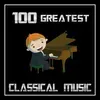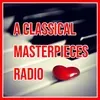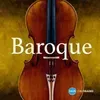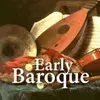Baroque Live Radio Stations
Radio Stations
- #1 Splash Classical

- 1.FM - Otto's Baroque Music Radio

- 1.fm Otto's Baroque music

- 100 GREATEST CLASSICAL MUSIC

- 24/7 Bach

- A CLASSICAL MASTERPIECES

- Antena 2 (RTP)

- Calm Radio - Baroque

- Calm Radio - Chamber Music

- Calm Radio - Early Baroque

- Calm Radio - Flute

- Calm Radio - Symphony

- Calm Radio - Violin

- Concertzender Oude Muziek

- Cyberspazio Radio

- Davide of MimicDavide of Mimic
- deutschlands Beatradio msG

- Exclusively J.S. Bach

- Exclusively Vivaldi

- Klassik Radio - Barock

- Klassikradio - Barock

- Klassikradio - Pure Bach

- Positively Baroque [Europe stream]
![Positively Baroque [Europe stream]](/100/Vcaedj8bjHH3VECKytU3O.webp)
- Radio Art - Baroque

- Radio Art - J.S.BachRadio Art - J.S.Bach
- Radio Clasic Bach

- Radio Clasic Bach

- Sunday Baroque

- Venice Classic Radio

Choose a Genre
Baroque Radio: A Timeless Journey Through Musical Elegance
The Baroque era, which spanned from roughly 1600 to 1750, is known for its extraordinary contributions to classical music. It was a period of monumental creativity, producing compositions that have not only withstood the test of time but continue to captivate audiences to this day. The "Baroque" radio station genre serves as an immersive gateway to this rich period, offering listeners the chance to explore the elaborate, intricate, and emotionally expressive works of some of history’s most revered composers. As interest in classical music continues to grow, these stations provide an avenue for discovering the elegance and innovation of Baroque music.
Masterpieces of the Baroque Period
"Baroque" radio stations celebrate the genius of composers like Johann Sebastian Bach, George Frideric Handel, Antonio Vivaldi, and Georg Philipp Telemann—figures whose works defined the Baroque era and continue to resonate deeply with listeners. Baroque music is celebrated for its complexity, rich textures, and emotional depth. Whether it's Bach’s intricate fugues or Vivaldi’s lively concertos, these compositions take listeners on a fascinating journey through a period of unprecedented musical exploration.
The Baroque style is known for its ornate counterpoint and polyphonic textures, where multiple independent melodies intertwine to create a rich, layered tapestry of sound. Bold harmonies and dramatic contrasts are hallmarks of the Baroque aesthetic, giving the music a distinctive sense of grandeur and emotional intensity. From grand orchestral works to intimate chamber pieces, the compositions featured on "Baroque" radio stations highlight the diversity and vibrancy of this extraordinary musical period.
Orchestral and Vocal Treasures
A signature of the Baroque era is its intricate orchestral compositions, frequently played in sonatas, concertos, and suites. These musical forms showcase the virtuosity of both individual instruments and large ensembles, offering a unique blend of technical skill and emotional expression. Baroque radio stations often feature works for orchestras that include strings, woodwinds, brass, and percussion, creating expansive, expressive soundscapes.
In addition to instrumental music, Baroque radio stations often air some of the most celebrated vocal works in classical music. Famous compositions like Handel’s "Messiah" and Bach’s "St. Matthew Passion" are renowned for their soaring melodies and emotional depth. These vocal masterpieces frequently combine choral and solo voices, producing a dramatic interplay between voice and orchestra that resonates with power and beauty.
The Authentic Sound of Baroque
To provide an authentic listening experience, "Baroque" radio stations often feature performances using period instruments—such as the harpsichord, viola da gamba, and organ—that evoke the original sound world of the Baroque period. These instruments contribute to the distinct tonal qualities of Baroque music, creating a blend of clarity and warmth that sets it apart from other classical traditions.
The use of period instruments also offers insight into historical performance practices. For example, dynamics, ornamentation, and articulation were essential elements of Baroque music, and tuning into these performances allows listeners to hear the music as it was originally intended to be heard. These authentic renditions help connect us with the artistry and craftsmanship of Baroque musicians, enhancing our appreciation of the music.
Historical Context and Insight
"Baroque" radio stations offer more than just music—they also provide valuable context and commentary on the composers and the cultural significance of their works. Many stations feature discussions about the historical background of the Baroque period, shedding light on the political, social, and cultural changes that influenced the music of the time. These segments provide listeners with a deeper understanding of the composers' motivations and how their works reflected the ethos of the era.
For those new to Baroque music, the historical context provided by "Baroque" radio stations makes the music more accessible, enriching the overall listening experience. From exploring Bach’s compositional genius to understanding the rise of opera in Handel’s works, these insights deepen the listener’s connection with the music.
Global Popularity and Digital Access
The appeal of Baroque music transcends borders, with dedicated "Baroque" radio stations found in major cultural centers like London, Vienna, and New York. These stations often broadcast both celebrated masterpieces and lesser-known gems, offering listeners a broad spectrum of Baroque music. In addition, the genre’s popularity has expanded into the digital realm, where internet radio stations allow music lovers from across the globe to tune in and enjoy Baroque music anytime, anywhere.
Whether you're an established fan of Baroque music or a newcomer eager to explore its wonders, these stations provide a unique opportunity to experience the elegance of this extraordinary musical period. The digital age has made it easier than ever to access Baroque compositions, ensuring that listeners worldwide can enjoy this timeless genre no matter where they are.
A Journey Through Time
In conclusion, "Baroque" radio stations offer a captivating journey through one of the most influential and enduring periods in music history. With their rich orchestral and vocal compositions, use of period instruments, and insightful historical commentary, these stations open a window into the past—a time when music was deeply intertwined with both art and culture. Listening to Baroque music is not just an auditory experience; it is an opportunity to connect with the past and appreciate the beauty and complexity of music that continues to inspire, uplift, and enrich our lives.
Whether you’re revisiting timeless classics or discovering hidden gems, "Baroque" radio stations offer a rare opportunity to experience the grandeur and intricacy of a musical era that still resonates today.
The Baroque era, which spanned from roughly 1600 to 1750, is known for its extraordinary contributions to classical music. It was a period of monumental creativity, producing compositions that have not only withstood the test of time but continue to captivate audiences to this day. The "Baroque" radio station genre serves as an immersive gateway to this rich period, offering listeners the chance to explore the elaborate, intricate, and emotionally expressive works of some of history’s most revered composers. As interest in classical music continues to grow, these stations provide an avenue for discovering the elegance and innovation of Baroque music.
Masterpieces of the Baroque Period
"Baroque" radio stations celebrate the genius of composers like Johann Sebastian Bach, George Frideric Handel, Antonio Vivaldi, and Georg Philipp Telemann—figures whose works defined the Baroque era and continue to resonate deeply with listeners. Baroque music is celebrated for its complexity, rich textures, and emotional depth. Whether it's Bach’s intricate fugues or Vivaldi’s lively concertos, these compositions take listeners on a fascinating journey through a period of unprecedented musical exploration.
The Baroque style is known for its ornate counterpoint and polyphonic textures, where multiple independent melodies intertwine to create a rich, layered tapestry of sound. Bold harmonies and dramatic contrasts are hallmarks of the Baroque aesthetic, giving the music a distinctive sense of grandeur and emotional intensity. From grand orchestral works to intimate chamber pieces, the compositions featured on "Baroque" radio stations highlight the diversity and vibrancy of this extraordinary musical period.
Orchestral and Vocal Treasures
A signature of the Baroque era is its intricate orchestral compositions, frequently played in sonatas, concertos, and suites. These musical forms showcase the virtuosity of both individual instruments and large ensembles, offering a unique blend of technical skill and emotional expression. Baroque radio stations often feature works for orchestras that include strings, woodwinds, brass, and percussion, creating expansive, expressive soundscapes.
In addition to instrumental music, Baroque radio stations often air some of the most celebrated vocal works in classical music. Famous compositions like Handel’s "Messiah" and Bach’s "St. Matthew Passion" are renowned for their soaring melodies and emotional depth. These vocal masterpieces frequently combine choral and solo voices, producing a dramatic interplay between voice and orchestra that resonates with power and beauty.
The Authentic Sound of Baroque
To provide an authentic listening experience, "Baroque" radio stations often feature performances using period instruments—such as the harpsichord, viola da gamba, and organ—that evoke the original sound world of the Baroque period. These instruments contribute to the distinct tonal qualities of Baroque music, creating a blend of clarity and warmth that sets it apart from other classical traditions.
The use of period instruments also offers insight into historical performance practices. For example, dynamics, ornamentation, and articulation were essential elements of Baroque music, and tuning into these performances allows listeners to hear the music as it was originally intended to be heard. These authentic renditions help connect us with the artistry and craftsmanship of Baroque musicians, enhancing our appreciation of the music.
Historical Context and Insight
"Baroque" radio stations offer more than just music—they also provide valuable context and commentary on the composers and the cultural significance of their works. Many stations feature discussions about the historical background of the Baroque period, shedding light on the political, social, and cultural changes that influenced the music of the time. These segments provide listeners with a deeper understanding of the composers' motivations and how their works reflected the ethos of the era.
For those new to Baroque music, the historical context provided by "Baroque" radio stations makes the music more accessible, enriching the overall listening experience. From exploring Bach’s compositional genius to understanding the rise of opera in Handel’s works, these insights deepen the listener’s connection with the music.
Global Popularity and Digital Access
The appeal of Baroque music transcends borders, with dedicated "Baroque" radio stations found in major cultural centers like London, Vienna, and New York. These stations often broadcast both celebrated masterpieces and lesser-known gems, offering listeners a broad spectrum of Baroque music. In addition, the genre’s popularity has expanded into the digital realm, where internet radio stations allow music lovers from across the globe to tune in and enjoy Baroque music anytime, anywhere.
Whether you're an established fan of Baroque music or a newcomer eager to explore its wonders, these stations provide a unique opportunity to experience the elegance of this extraordinary musical period. The digital age has made it easier than ever to access Baroque compositions, ensuring that listeners worldwide can enjoy this timeless genre no matter where they are.
A Journey Through Time
In conclusion, "Baroque" radio stations offer a captivating journey through one of the most influential and enduring periods in music history. With their rich orchestral and vocal compositions, use of period instruments, and insightful historical commentary, these stations open a window into the past—a time when music was deeply intertwined with both art and culture. Listening to Baroque music is not just an auditory experience; it is an opportunity to connect with the past and appreciate the beauty and complexity of music that continues to inspire, uplift, and enrich our lives.
Whether you’re revisiting timeless classics or discovering hidden gems, "Baroque" radio stations offer a rare opportunity to experience the grandeur and intricacy of a musical era that still resonates today.